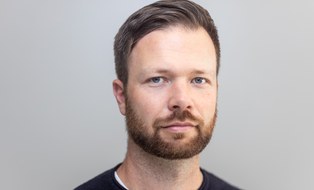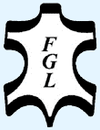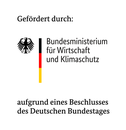Investigations on ultrasonic enhanced embossing of leather goods with conventional and plastic embossing tools
Embossing is an important processing step in leather production for the apparel, furniture, and automotive industries where both large-area structures and smaller motifs (logos, individualizations) are applied. The process of embossing itself as well as the production of the embossing tools is associated with considerable costs and energy consumptions.
The personalization and individualization of specific leather sections in the segment of high-priced automotive leather, boat leather, or bag goods often requires only a one-time embossing of a motif. With the use of a die in small series, this form of die design becomes very costly due to the production costs for the embossing tools. Elaborate motifs are possible with conventional metalworking production technologies (CNC milling, laser cutting, engraving, etching, etc.), but they only pay off when these stamps are used for large series.
The use of ultrasonic vibrations for embossing leather can be expected to reduce mechanical and thermal stresses on the embossing tools and the material. Anywhere where leather is difficult or impossible to emboss using conventional techniques, or where material damage occurs due to high temperatures and pressures, ultrasonic embossing is a serious alternative. At the same time, the reduced process temperatures and process pressures in the ultrasonic process enable the use of additively manufactured embossing tools made of plastic, for example, with reduced material and time requirements.
Therefore, the focus of the research project is to investigate the basics of the effect of ultrasound in leather embossing and the exemplary production and suitability testing of alternative embossing tools. Successful results will increase the flexibility of the embossing process and establish the basis for the economical production of customer-specific small series.
Project funding:
This research project (IGF 21335 BR) is supported by the Arbeitsgemeinschaft industrieller Forschungsvereinigungen “Otto von Guericke” e. V. (AiF) , the Forschungsgemeinschaft Leder e.V. and the Federal Ministry of Economic Affairs and Energy .
Project duration:
04.2021-09.2023
Project management and contact:
Project leader: Prof. Jens-Peter Majschak
Project manager: André Hofmann
 © Nils Eisfeld
© Nils Eisfeld
Processing Systems
NameDipl.-Ing. André Hofmann
Forming of fibre-based Materials
Send encrypted email via the SecureMail portal (for TUD external users only).
 © Nils Eisfeld
© Nils Eisfeld
Processing Systems
NameDipl.-Ing. Lena Berthold
Forming of Fibre Based Materials
Send encrypted email via the SecureMail portal (for TUD external users only).



